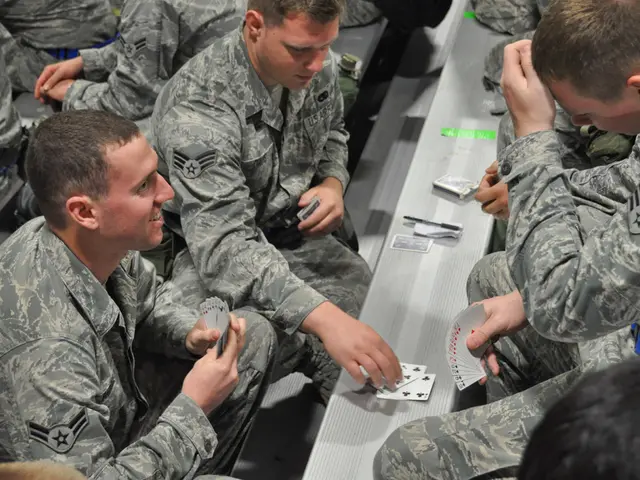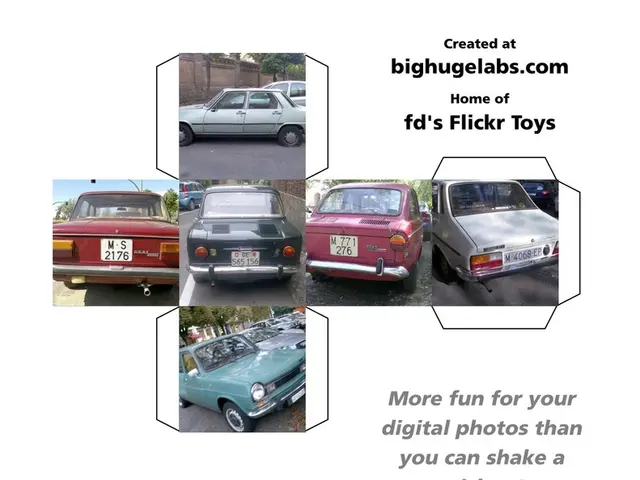Mastering Navigational Tactics for Networking Events in the UK Film Industry
Navigating the UK Film Industry: A Guide to Effective Networking
The UK film industry is a vibrant, dynamic landscape with its own unique power structures, funding mechanisms, and cultural dynamics. For those looking to make their mark in this field, networking is key. Here are some strategies and approaches to help you build strong, productive networks in the UK film industry.
Join Professional Film Networks and Events
Groups like the London Film Network offer structured events where filmmakers, actors, financiers, and marketing specialists gather to collaborate and share projects. These meetups create a professional environment for networking and skill-building, especially for first-time filmmakers.
Engage with Regional Film Hubs
Cities such as Bristol, Cardiff, and Cheltenham are emerging as key regional film hubs with their own networking events and support organizations. These venues provide opportunities to meet diverse industry professionals and engage with local creative ecosystems.
Leverage Support from Industry Bodies
The British Film Institute (BFI) runs programs like the Film Academy which promote talent progression and focus on expanding opportunities for diverse voices in the UK film industry. Staying involved with BFI events and initiatives can open doors for new connections and collaborative projects.
Participate in Dedicated Film Networking Events
The best strategies for networking in the UK film industry include attending dedicated film networking events, joining film industry networks and meetups, engaging with regional film hubs, and leveraging industry development programs focused on skills and inclusion.
Implement an Authentic Approach
Successful networking in the UK film industry requires a fundamental mindset shift, moving from seeing networking as transactional interactions toward viewing it as relationship cultivation. This involves thoughtful questions about recent projects, genuine appreciation for specific aspects of someone's work, or natural conversation joining based on shared contexts.
Balance Confidence with Appropriate Approaches
In UK industry events, balancing confidence with appropriate approaches is essential, favoring organic conversation entry points over direct introductions. Conversational overenthusiasm, monopolizing conversations, or failing to read disengagement signals can damage networking opportunities.
Strategic Event Selection and Preparation
Developing a strategic approach begins with clearly defined time horizons, creating a networking inventory, and understanding industry context. Strategic event selection, thorough intelligence gathering, personal preparation, and a focused event strategy are crucial for effective UK film industry networking.
Follow-Up Strategically
The 24-48 hour window following industry events is crucial for transforming brief encounters into potential relationships. Value-based follow-up focuses on offering something beneficial rather than immediately requesting help or opportunities. Following up too aggressively or failing to follow up at all can damage potential relationships.
Digital Tools and Pitfalls
Digital tools have transformed networking maintenance without changing the fundamental importance of authentic connection. However, digital networking environments can create pitfalls, such as social media oversharing or generic connection requests.
Mental Health Preservation
Mental health preservation requires film-specific wellness approaches, visual creative recovery techniques, narrative burnout prevention, and emotional boundaries with content. Community structures provide essential resilience support, including peer feedback circles, mentorship relationship cultivation, and collaborative project initiation during career gaps.
Sustainable Inspiration
Sustainable inspiration requires deliberately balanced input-output systems, structured consumption schedules, creative practice continuity, and intentional inspiration source diversification.
Regional Production Hubs and London
London remains the gravitational center of UK film production, but regional production hubs have gained significant momentum. Recognizing potential collaboration signals and transitioning skillfully toward next steps is crucial for advancing conversations.
[1] London Film Network: https://londonfilmnetwork.co.uk/ [2] Bristol Film Office: https://bristolfilmoffice.co.uk/ [3] Futures in Film: https://www.futuresinfilm.org.uk/ [5] British Film Institute: https://www.bfi.org.uk/
This guide provides a starting point for navigating the UK film industry. By implementing these strategies, you'll be well on your way to building a strong, productive network of industry professionals.
- Engaging with the London Film Network can offer structured events for collaborations in the fashion-and-beauty sector, as many makeovers and photoshoots are part of film production.
- Bristol, a key regional film hub, is also a hotspot for fashion-and-beauty events, providing opportunities to network with local makeup artists and stylists.
- Industry bodies like the British Film Institute (BFI) host fashion-and-beauty related events, giving insights into current trends and local talent.
- Participating in dedicated film networking events can lead to collaborations with fashion-and-beauty industry professionals, helping to enhance the visual aesthetics of film productions.
- An authentic approach towards networking means showing interest in a fellow attendee's latest fashion-and-beauty projects, fostering relationships built on mutual respect and understanding.
- Balancing confidence with appropriate approaches is necessary: instead of directly introducing oneself as a fashion-and-beauty expert, listen attentively and offer constructive feedback based on observed work.
- Strategic event selection should prioritize film festivals and fashion weeks, where opportunities for meeting fashion-and-beauty professionals are abundant.
- Follow-up strategically by expressing admiration for their recent work or suggesting potential collaborations, rather than immediately asking for favors or opportunities.
- Digital tools like LinkedIn can help maintain connections and stay updated on fashion-and-beauty industry developments, but be mindful to avoid generic connection requests or oversharing personal information.
- Mental health preservation is essential for professionals working in the fashion-and-beauty and film industries, with self-care practices like stress management, mindfulness, and pursuing hobbies outside of work helping prevent burnout.
- To find sustainable inspiration, engage with fashion-and-beauty influencers, fashion magazines, and attend industry talks and workshops.
- Recognize potential collaboration signals with fashion-and-beauty professionals, such as discussing common interests or shared challenges in the industry.
- Transition skillfully from initial conversations to next steps by proposing informal meetings or exchanging contact information.
- Food-and-drink opportunities often present during film production, making it essential to network with caterers, chefs, and food stylists.
- Social media platforms help connect with restaurant owners, food bloggers, and other food enthusiasts involved in film productions.
- Cities like Bristol are not only film hubs but also foodies' destinations, offering chances to connect with local food categories and taste their unique culinary offerings.




